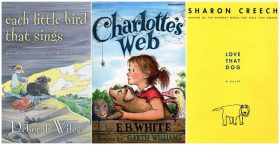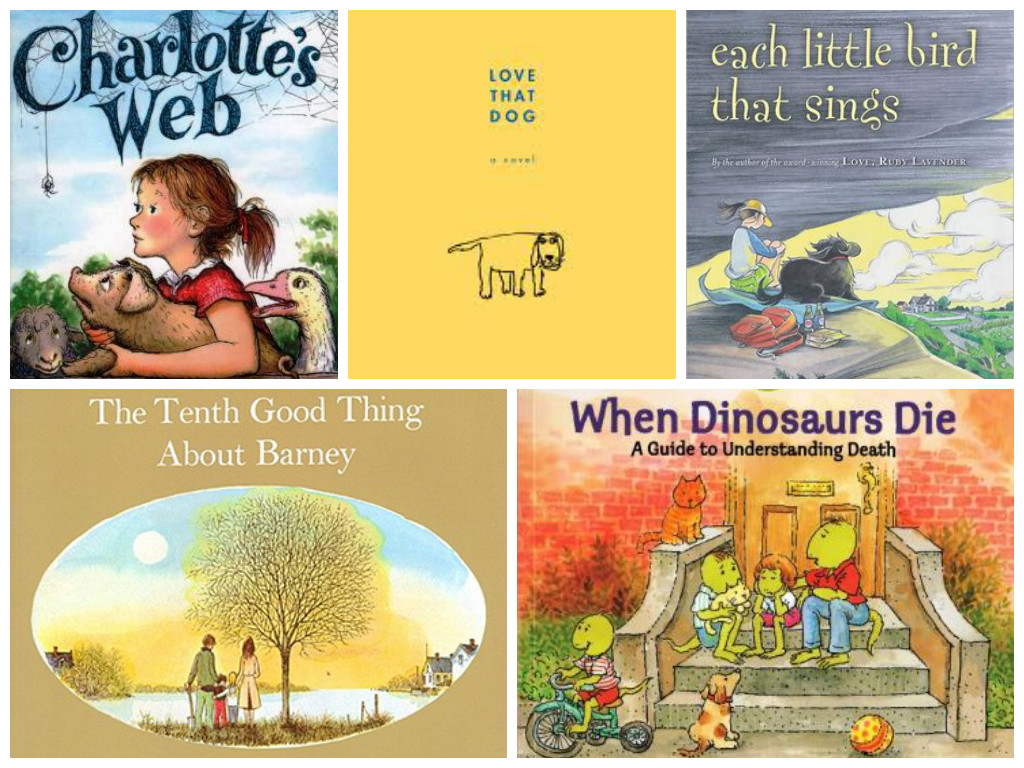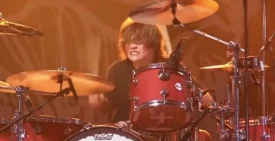Talking to children about death doesn’t have to be awkward. Here are some kids’ books (in order of awesomeness) that can help:
1. “Charlotte’s Web” by E.B. White (Ages 7 to Adult)
“Charlotte’s Web” is not just greatest children’s book about death, it is the greatest children’s book about … everything. It teaches kids about the power of friendship and loyalty, and about the pain of loss; it reassures them that they will survive their seemingly unsurvivable grief. Charlotte the spider, facing her own mortality, tells Wilbur the pig that he’ll still find joy and meaning in life after she’s gone. She reassures him that his presence in her life has been a source of joy and meaning to her, something she cherishes even as she’s leaving the world. “After all, what’s a life, anyway?” Charlotte tells Wilbur. “We’re born, we live a little while, we die. A spider’s life can’t help being something of a mess, with all this trapping and eating flies. By helping you, perhaps I was trying to lift up my life a trifle. Heaven knows anyone’s life can stand a little of that.” And she reassures him, in E.B. White’s gorgeous language, that death is part of the cycle of life. “Winter will pass, the days will lengthen, the ice will melt in the pasture pond. The song sparrow will return and sing, the frogs will awake, the warm wind will blow again. All these sights and sounds and smells will be yours to enjoy, Wilbur—this lovely world, these precious days…” I’m crying right now.
2. “The Tenth Good Thing About Barney” by Judith Viorst (Ages 3-9)
For younger kids, I love this picture book about a boy whose beloved cat has died. It shows that fury is a part of loss, a fact many books for small children shy away from. And it’s great for agnostic, non-religious or atheist families. By the author of “Alexander and the Terrible, Horrible, No-Good, Very Bad Day,” it has tinges of humor and deceptively simple, lovely writing.
3. “Love That Dog” by Sharon Creech (Ages 8-12)
In Creech’s free-verse novel, a kid named Jack is forced to write and discuss poems for his English class, and is annoyed by the entire exercise. But through poetry, he gradually opens up about the recent death of his dog, and he begins to see how reading and writing have the power to ease grief, and how self-expression can be a source of strength and human connection. “Love That Dog” would make a great gift for a taciturn boy who’s grieving but doesn’t want to talk about it; and it’s a book that adults as well as older grade-schoolers and middle-schoolers can appreciate.
4. “When Dinosaurs Die” by Laurie Krasny Brown (Ages 3-7)
This is a clear, direct, fact-based book about the mechanics of death. It answers the questions little kids often ask, ones that make us grownups uncomfortable. What happens to the body after death? Can we still live in our house? What’s cremation? You can skip the parts that don’t feel relevant to your circumstances — there are explanations of suicide, neo-natal death, drug abuse, and decomposition — but I’d encourage you not to. Kids crave facts, and shielding them may not do them any favors. They have a gift for understanding just as much as they need to, tuning out whatever they’re not ready for.
5. “Each Little Bird That Sings” by Deborah Wiles (Ages 9-11)
Wiles’ book is set in a family-run funeral home in rural Mississippi. The narrator, 10-year-old Comfort, has a lot of experience with death, both because it’s her family’s business and because she’s coping with terrible loss herself. She advises mourners, “Don’t try to hide death from kids. If Grandpa has died, don’t say, ‘We lost Grandpa,’ because little kids will want to know why you don’t go look for him. Just say, ‘Grandpa died.’ Don’t say ‘Grandpa passed,’ either, because we’ll wonder what grade he was in.” She’s right — euphemisms and elisions do more harm than good. Like life, this book is sad, but also happy. Comfort has to deal with terrible things (the author wrote it after a series of shattering losses in her own family), but she struggles to rise to the occasion, helping others despite her own grief and not letting her sorrow turn her into a jerk or paralyze her. And that’s all any of us can do.
Marjorie Ingall is a columnist for Tablet magazine, an online magazine of Jewish news, ideas, and culture, where a version of this piece originally ran.









